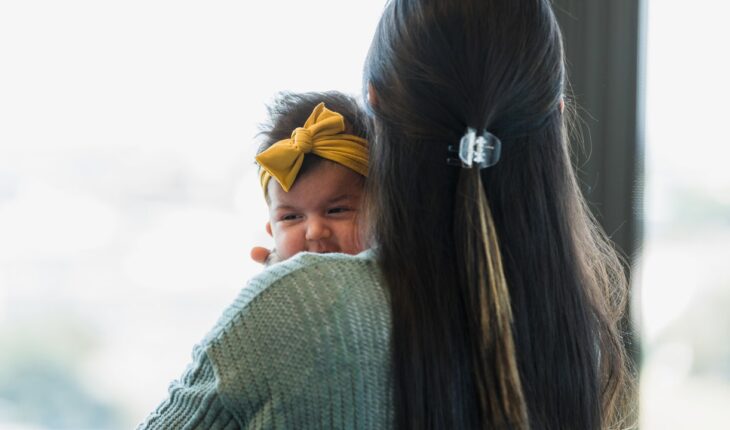
It’s not just officially cold and flu season, it’s RSV season. RSV, which stands for respiratory syncytial virus, is a highly contagious illness that affects people of all ages, especially in the late fall and winter (cases usually peak in December and January). You might not even realize what it is when you have it—most of the time, it causes mild, cold-like symptoms. However, for some people, this common virus can take a very serious turn, even leading to hospitalization or death. Older adults and anyone with a weakened immune system, heart or lung disease, or other underlying medical conditions are among the groups more likely to develop severe RSV.
The other group at the highest risk when it comes to RSV is children under age five, and specifically infants—especially preterm babies and infants under six months old. The younger the child, the smaller their lungs, and the higher the risk that their tiny airways can become inflamed and dangerously narrowed in response to an RSV infection. And the chances they’ll get one are incredibly high: Almost all children get an RSV infection by the time they’re two, and approximately 20 to 30 percent will develop a lower respiratory tract infection like bronchiolitis or pneumonia as a result. In the United States, an estimated 58,000 to 80,000 children under the age of five experience hospitalization each year due to RSV, according to the Centers for Disease Control and Prevention. This makes RSV the number-one cause of hospitalization in infants.
The good news: To protect infants from potentially life-threatening RSV infections, the CDC now recommends two recently FDA-approved immunization options, each offering 75 to 85 percent protection against severe RSV and hospitalization. One is a maternal RSV vaccine—Pfizer’s Abrysvo, approved in 2023—that can be given to pregnant people during the third trimester (weeks 32 to 36), and is also approved for adults over age 60. The most common side effects are mild—including headache, fatigue, and redness at the injection site—and the antibodies produced in response to a maternal RSV vaccine will continue to protect an infant against RSV for about six months after birth.
The RSV vaccine is a single dose; if you’ve gotten an RSV vaccine during a previous pregnancy, your healthcare provider probably won’t recommend you get another—instead, your newborn can get their RSV protection through a second immunization option, monoclonal antibodies. An injection of monoclonal antibodies called nirsevimab—AstraZeneca’s Beyfortus—was also FDA-approved for preventing severe RSV in infants and young children in 2023. The RSV vaccine for infants is delivered via shot, which offers immediate protection against the virus that lasts about five months, can be given within a week of birth, or timed closer to a baby’s first RSV season (October or November). (Note: Most healthy full-term babies don’t need this form of immunization if the mother got an RSV vaccine while pregnant.) Children at higher risk from RSV may be eligible for a different antibody RSV immunization called palivizumab, brand name Synagis, which helps prevent serious respiratory tract disease. However, this injection needs to be given every month during RSV season and is very expensive.





